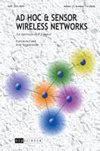Traffic Signal Control Using Deep Reinforcement Learning with Multiple Resources of Rewards
IF 0.6
4区 计算机科学
Q4 COMPUTER SCIENCE, INFORMATION SYSTEMS
引用次数: 8
Abstract
Intelligent traffic signal control is an effective way to solve the traffic congestion problem in the real world. One trend is to use Deep Reinforcement Learning (DRL) to control traffic signals based on the snapshots of traffic states. While most of the research used single numeric reward to frame multiple objectives, such as minimizing waiting time and waiting queue length, they overlooked that one reward for multiple objectives misleads agents taking wrong actions in certain states, which causes following traffic fluctuation. In this paper, we propose a DRL-based framework that uses multiple rewards for multiple objectives. Our framework aims to solve the difficulty of assessing behaviours by single numeric reward and control traffic flows more steadily. We evaluated our approach on both synthetic traffic scenarios and a real-world traffic dataset in Toronto. The results show that our approach outperformed single reward-based approaches.基于多奖励资源的深度强化学习交通信号控制
智能交通信号控制是解决现实生活中交通拥堵问题的有效途径。一个趋势是使用深度强化学习(DRL)来控制基于交通状态快照的交通信号。虽然大多数研究使用单个数字奖励来构建多个目标,例如最小化等待时间和等待队列长度,但他们忽略了多个目标的一个奖励会误导代理在某些状态下采取错误的行动,从而导致后续流量波动。在本文中,我们提出了一个基于drl的框架,该框架对多个目标使用多个奖励。我们的框架旨在解决单一数字奖励评估行为的困难,并更稳定地控制交通流量。我们在多伦多的合成交通场景和真实交通数据集上评估了我们的方法。结果表明,我们的方法优于单一的基于奖励的方法。
本文章由计算机程序翻译,如有差异,请以英文原文为准。
求助全文
约1分钟内获得全文
求助全文
来源期刊

Ad Hoc & Sensor Wireless Networks
工程技术-电信学
CiteScore
2.00
自引率
44.40%
发文量
0
审稿时长
8 months
期刊介绍:
Ad Hoc & Sensor Wireless Networks seeks to provide an opportunity for researchers from computer science, engineering and mathematical backgrounds to disseminate and exchange knowledge in the rapidly emerging field of ad hoc and sensor wireless networks. It will comprehensively cover physical, data-link, network and transport layers, as well as application, security, simulation and power management issues in sensor, local area, satellite, vehicular, personal, and mobile ad hoc networks.
 求助内容:
求助内容: 应助结果提醒方式:
应助结果提醒方式:


